They say that a country is a state of mind rather than a place. It has some truth to it — places, no matter how diverse, can function as countries, as long as they share common values and attitudes.
The purpose of cultural institutions like schools and universities, is to support those common values and attitudes. That doesn’t mean that values and culture are static, but you need evolution, not revolution.
Our education system is declining because it is in revolt against the culture which has served us so well. This has been going on for around 50 years, since the seventies, when educational achievement peaked. But none of our ministers for education has put the brakes on, let alone changed direction.
The new draft curriculum is another waypost on that accelerating decline.
If the first sign of madness is doing the same thing and expecting a different result, how are we to describe the state of mind that implements the same failed policy twice as hard and expects an even better result?
Yet that is what is happening with the new draft curriculum doubling down on the failed experiments of the current one.
Our results lag our competitors in South-East Asia, to the extent that a Year 9 student in Singapore or China will outperform a Year 12 student in Australia. How is doubling down on our current approach going to bridge this gap?
The Australian Curriculum, Assessment and Review Authority should be abolished and the education ministers need to start again.
Australia is one of the leading countries in the world for standard of living and quality of life.
We are one of the most desirable destinations for migrants per capita, demonstrating this success. We also rate extremely well on a range of international comparisons including freedom, corruption and happiness.
We also find ourselves in the least secure international situation for three generations. When someone told me off for being a cold war warrior on China I asked them to name something Hitler had done pre-1939 that Xi hadn’t also done. There was silence.
In 1939 a lot of people didn’t see a problem with Hitler, and perhaps the reason that a large number of people don’t see a problem with Xi can also be sheeted home to our education system. Anyone ill-informed enough to compare Trump to Hitler (which is a huge swathe of the population) knows nothing of either Trump or Hitler. A good education system would surely have quashed this false analogy.
Our education system needs to reinforce our successful cultural values, and give our youngest generations the skill and knowledge they need to continue Australia’s success and security.
The current curriculum, and its proposed successor, do not fulfil these requirements.
Neither of the current nor proposed curricula fulfil the role of preparing good well-rounded citizens with basic academic and cultural knowledge, productive attitudes, and problem-solving skills.
Both curricula tend to usurp the role of parents in providing children with moral and ethical direction, and that tendency is increasing. The curriculum is loaded with ideologically laden assumptions.
The cross-curricula priorities of Aboriginal and Torres Strait Islander Histories and Culture; Asia and Australia’s engagement with Asia; and Sustainability are arbitrarily chosen, superfluous to most areas of study, and reinforce ideological, not educational, values.
In particular, ATSI Histories and Culture units takes up disproportionate space in already crowded curricula, imparts little useful knowledge.
I’ve had an interest in Aboriginal cultures for decades, but it has never taught me much about the current world, except that if you don’t keep up you won’t be able to keep hold of your country.
To understand how the modern world operates, knowing about the agrarian societies of Europe and Asia, and their successor societies through to the present, is much more important.
The ATSI curriculum also encourages racism. For example, in analysing the writing of Aboriginal writers, they are treated as Aborigines first, and writers second. Instead of asking how they write, the curriculum asks how they write as an Aborigine, as though this is all they are.
It is a curious way to analyse literature which has tended to be analysed for universals. We don’t read Shakespear to understand Elizabethan England, but the human condition.
Shylock’s impassioned plea to be treated on his own merits “Hath not a Jew eyes?”, “If you prick us do we not bleed”, resonates because it is timeless, and because the person of Shakespeare disappears into it.
That in itself is a rebuttal of the presumption that we should read writers as representative of class, sex or race.
It’s not just subject matter that is the problem. The change in teaching methods, particularly in English, where phonics and direct instruction are not accepted as the basis for teaching reading and writing; and in Mathematics, where problem-solving is prioritised over number facts; will do nothing to cure the up to four-year deficits in the education of our students against our competitors in South-East Asia.
What underlies this is the idea that humans are naturally perfect, and it is social institutions, amongst which schools are counted, that make us imperfect. Essentially, the idea is that if you take the restrictions away, children will naturally learn. But if that were the case, we wouldn’t need schools at all, because children, being natural learners would pick it up as they went.
But of course, they won’t. That’s why we have compulsory schooling in the first place. Most children do need to be disciplined, and trained. They also need to be inspired, and they need people who can show them how to understand the concepts they can’t quite grasp. The desire to learn may be universal, but lessons make a huge difference as do mentors. The completely self-constructed human being doesn’t exist.
It’s a pretty simple concept really, familiar to anyone who has, for example, played sport. Take Ash Barty’s phenomenal performance from Saturday night. Even a player like her, at the most elite level, has a team, including coaches. Barty has oodles of confidence, but she’s not so over-confident that she thinks she can do it all herself (like a Nick Kyrgios). Every day of her life she practices to internalise physical movements so that they become instinctive; so muscles know what to do without being consciously instructed. She may play some very innovative shots, but they are built on a very strong foundation of unconscious responses.
But the need for education and training, along with repetition, something which is so obvious in most arenas of life, somehow isn’t required for the most difficult discipline of all – thinking. At least for Australia’s educators.
Perhaps the thing of paramount importance is culture. The success of Western culture seems to be so taken for granted by educators that, just as humans never thought about gravity until Isaac Newton’s discovery, we just accept the goodies are there, no matter what we do, or how poorly we think.
Yet the current moment is the most exceptional in human history, and the reason for that sits firmly in the European tradition, and in our case, more specifically, the British one.
Yet, the understanding of European, and in particular British, culture is marginalised in the curriculum, most glaringly in English Literature. This culture permeates our legal, political, social, moral and ethical structures. Without understanding it you can’t understand them.
These curricula are producing cultural orphans – people who do not know where they have come from, and as a consequence, no idea where they are going.
While you can do maths without culture, you can’t do life. The bowdlerised version of a curriculum that is now on offer from the federal government reveals an education establishment that has lost touch with the purpose of education, proper methods for teaching, and have no clue as to how one might answer the most fundamental of questions “What is life about?”.
How we can recover is not obvious, but a first step must be to reject not just the new draft curriculum, but the old one as well. Radical solutions are going to be required to drive the Philistines out of the temples of learning. It’s not going to be easy, and should have been attempted decades ago.
Graham Young is Executive Director of the Australian Institute for Progress and founder and editor of On Line Opinion.
Got something to add? Join the discussion and comment below.
Get 10 issues for just $10
Subscribe to The Spectator Australia today for the next 10 magazine issues, plus full online access, for just $10.

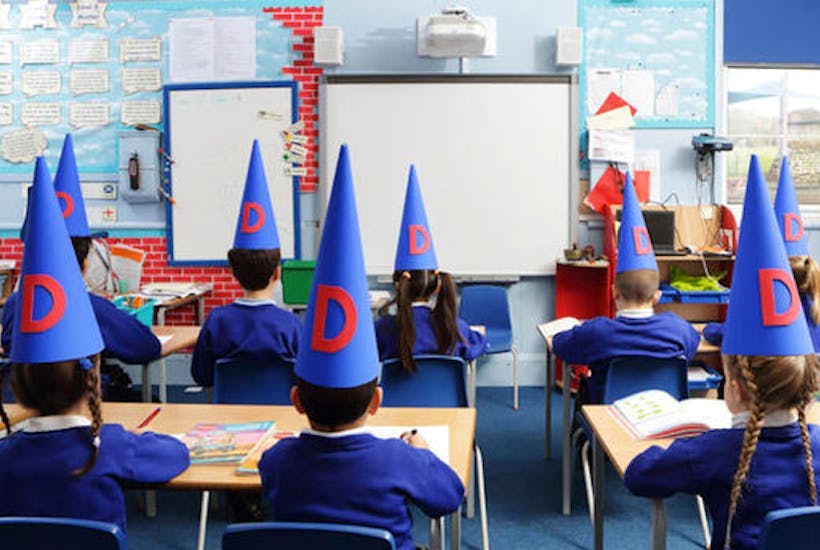
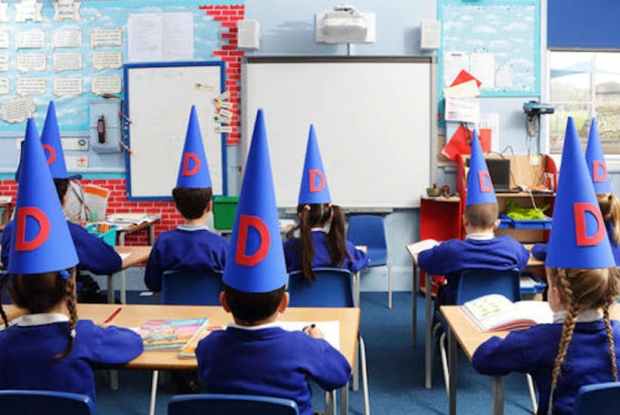
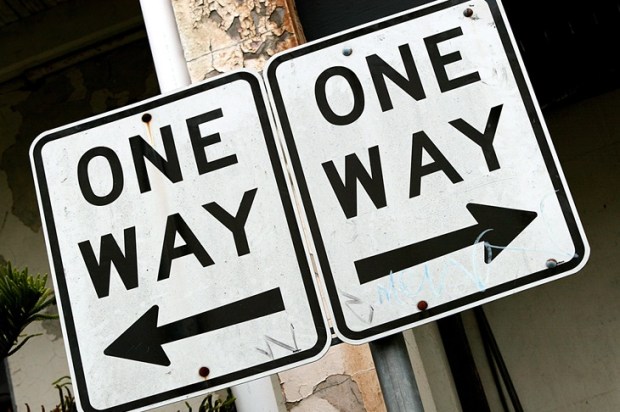


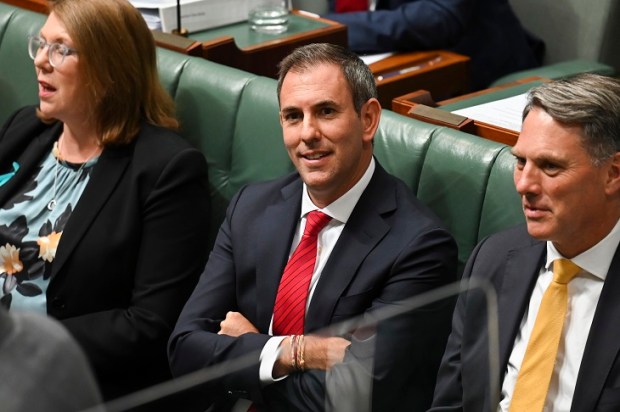
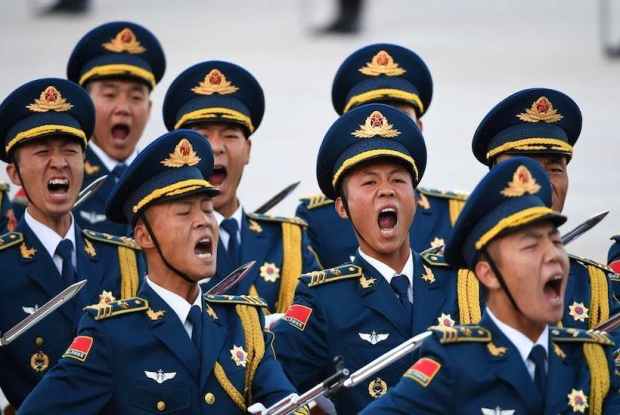


















Comments
Don't miss out
Join the conversation with other Spectator Australia readers. Subscribe to leave a comment.
SUBSCRIBEAlready a subscriber? Log in